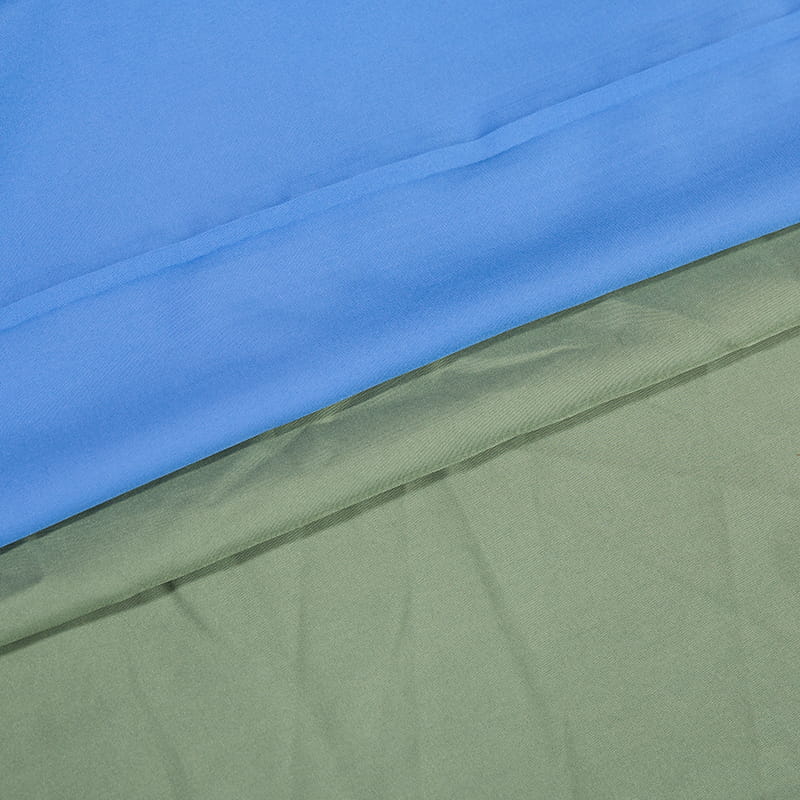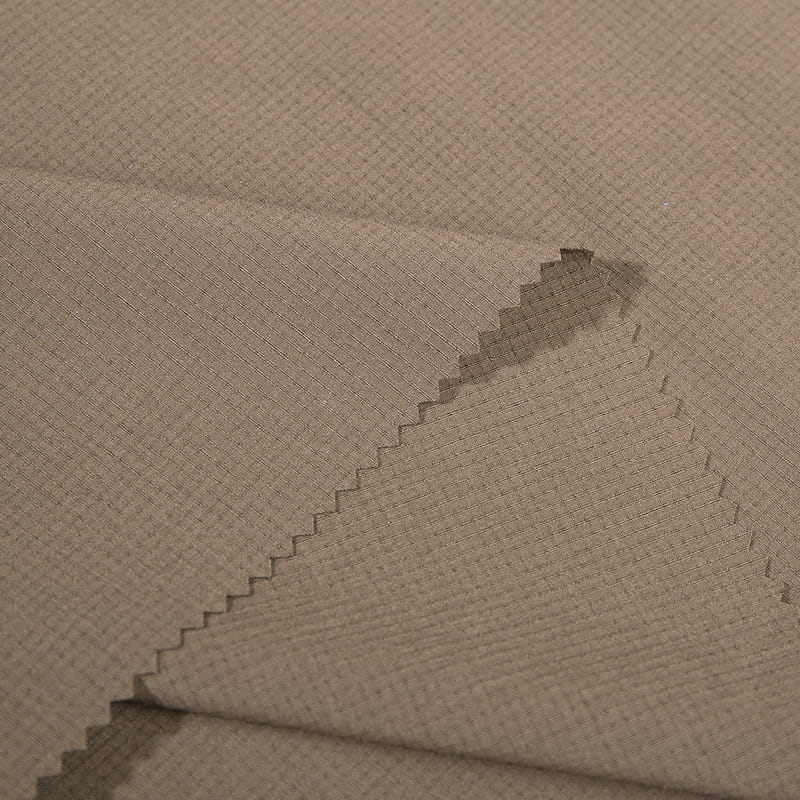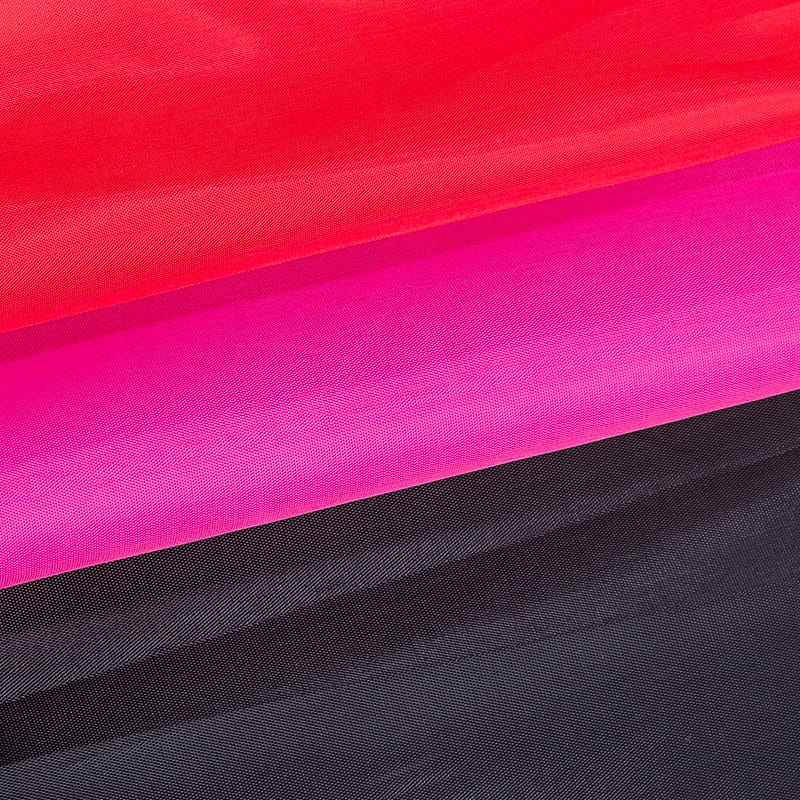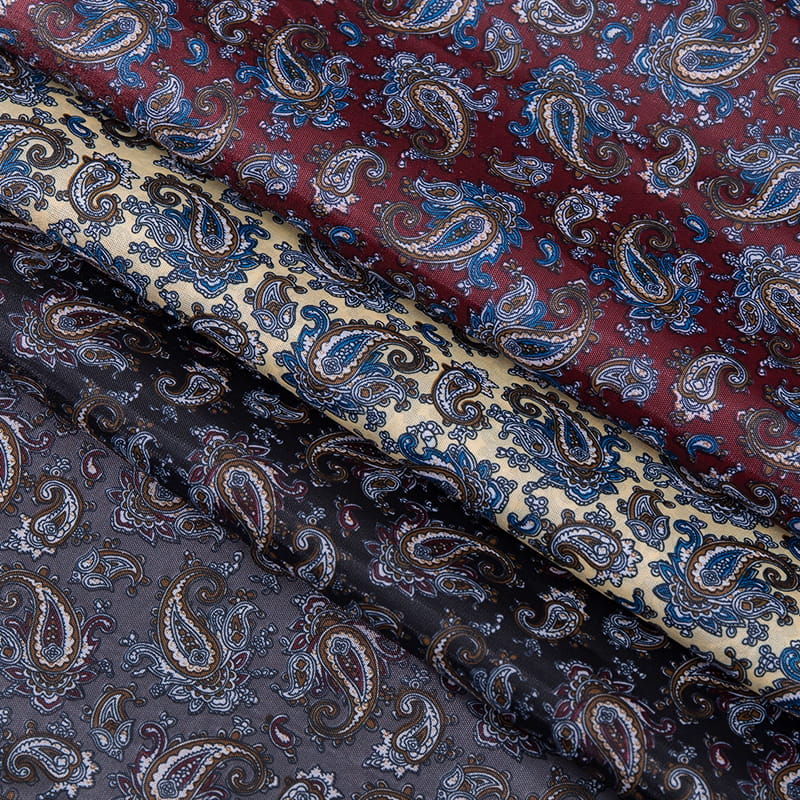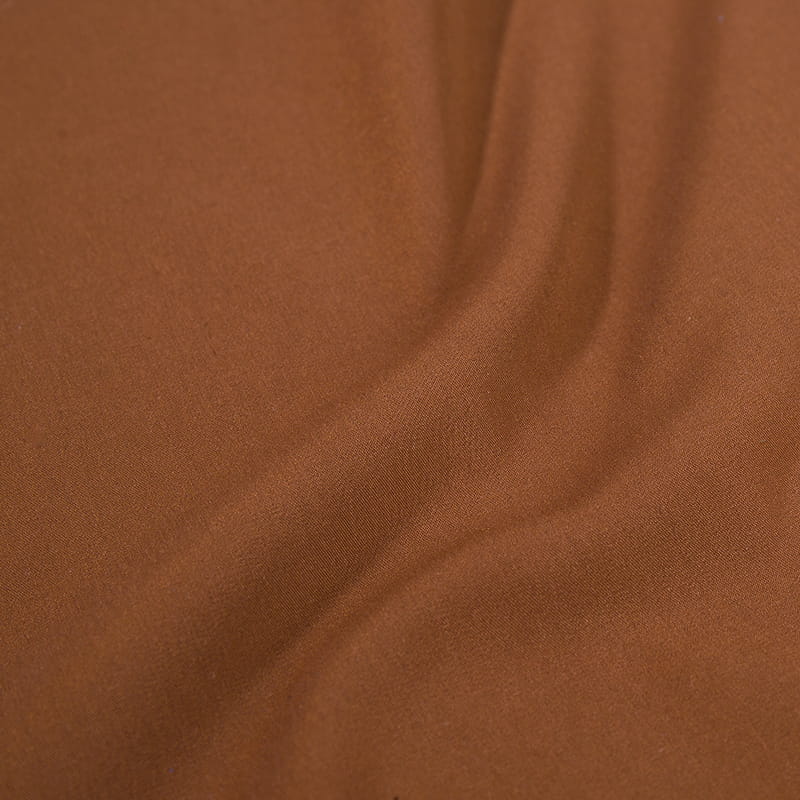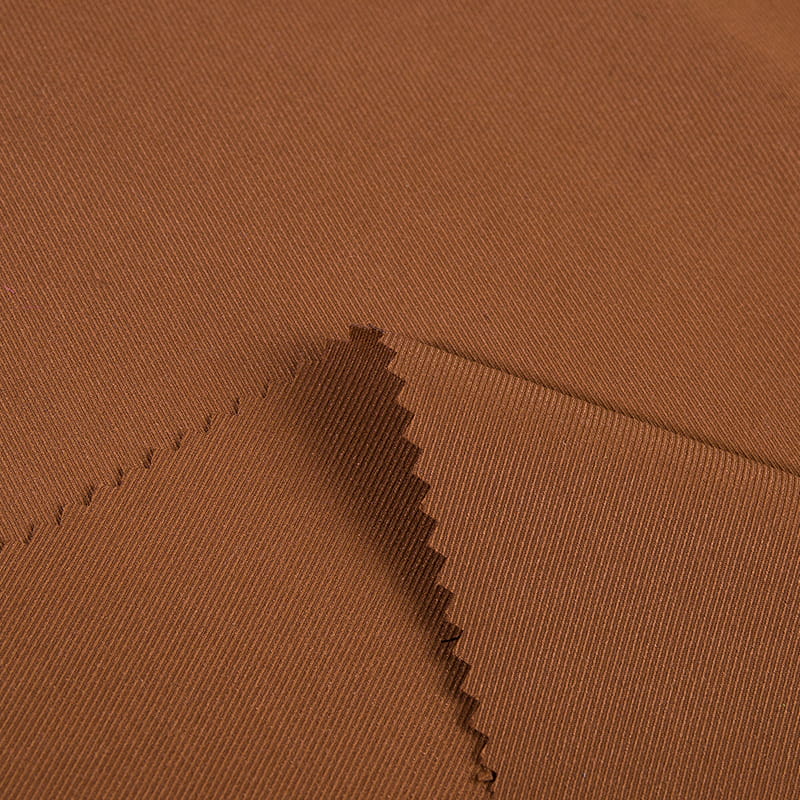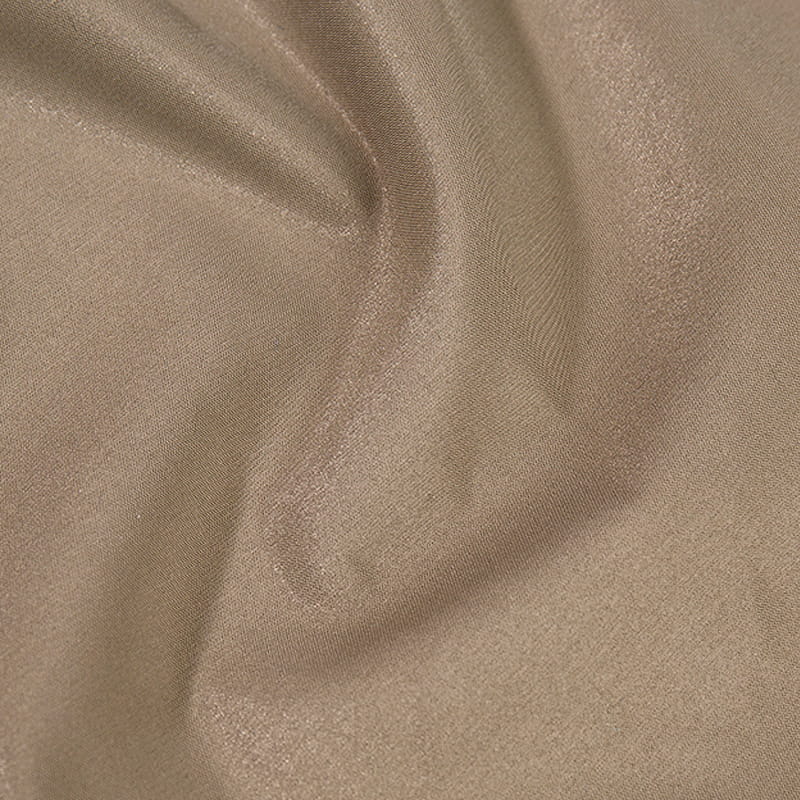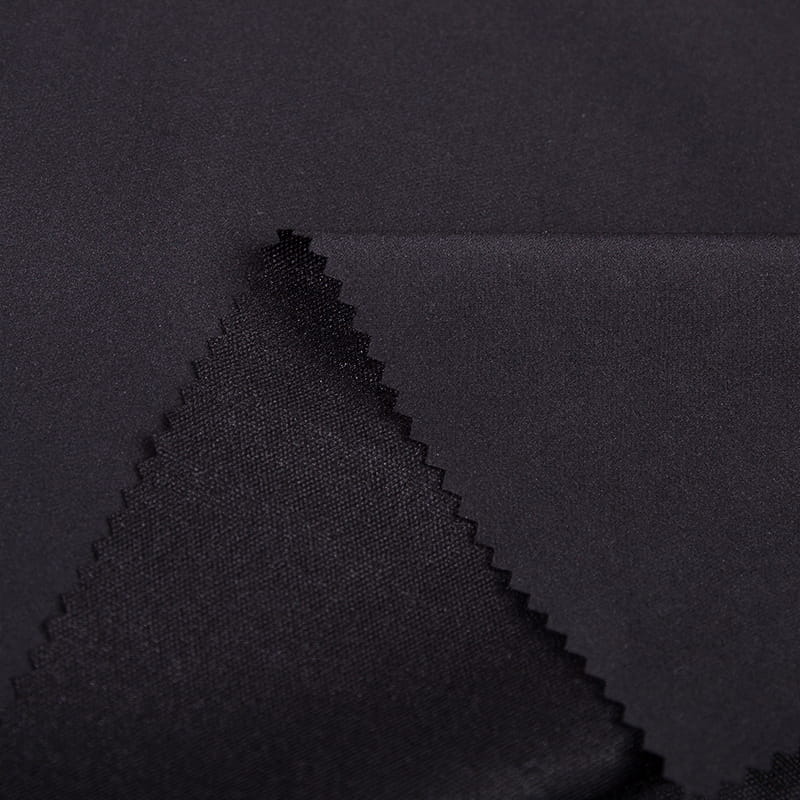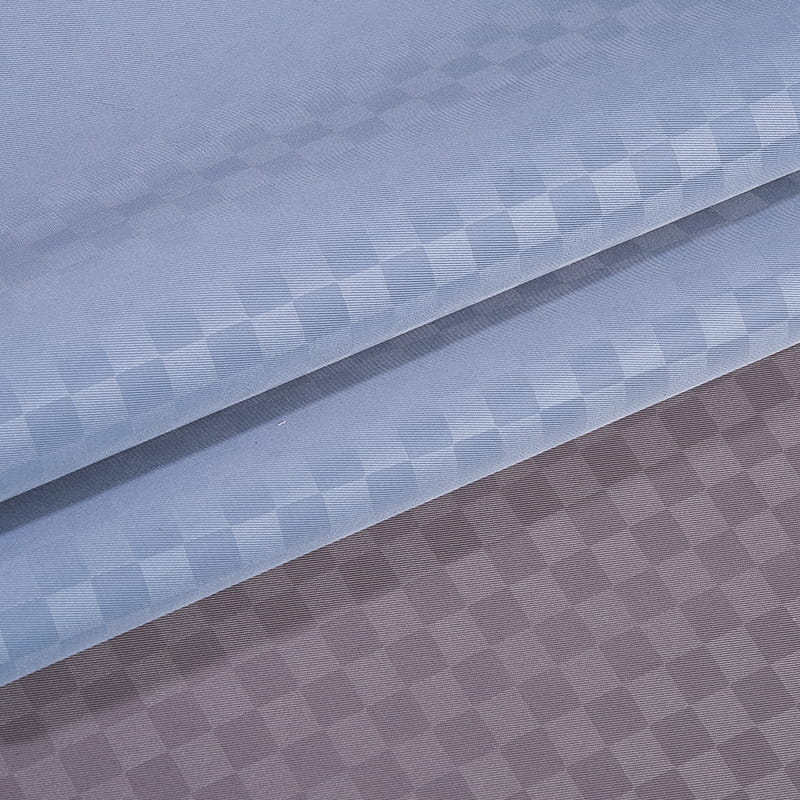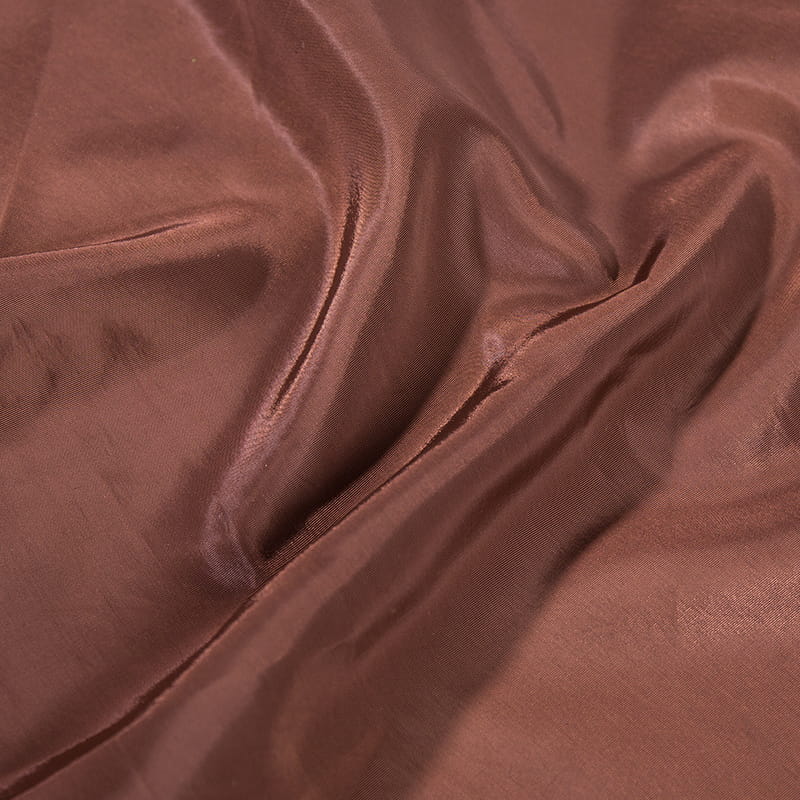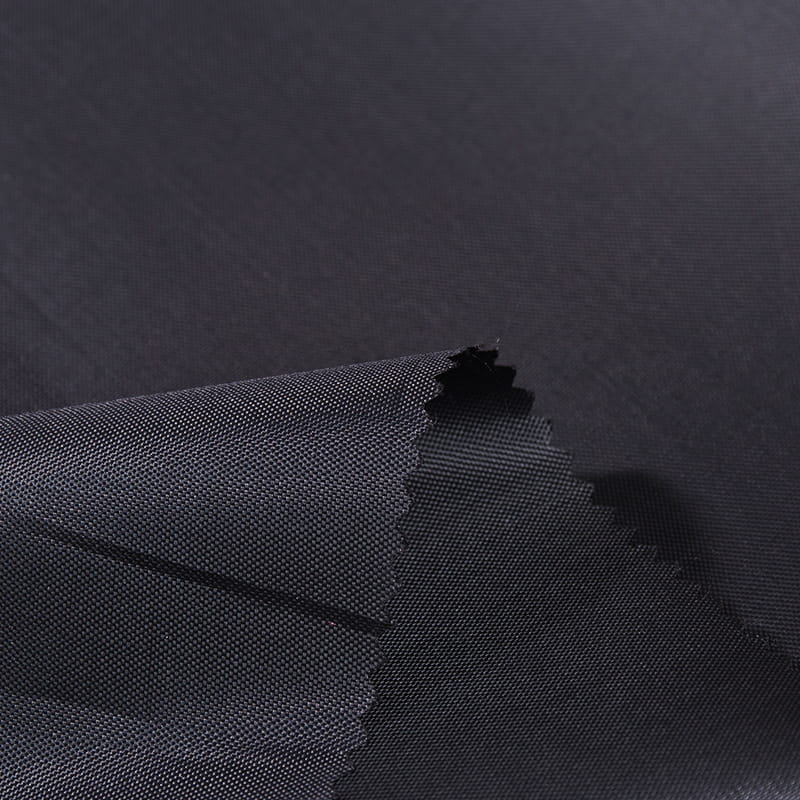How to care for and clean DOBBY WEAVE POLYESTER FABRIC products?
2024-04-25
DOBBY WEAVE POLYESTER FABRIC (Dobby woven polyester fabric) is a synthetic fiber product with good wear resistance, wrinkle resistance and elasticity. In order to maintain the beauty of this fabric and extend its life, proper care and cleaning methods are crucial.
Maintenance:
Avoid direct sunlight: Prolonged sunlight exposure can cause polyester fibers to age, affecting their color and elasticity. Therefore, you should choose a cool and ventilated place when storing, or use curtains to block sunlight.
Keep it Dry: Choose a dry, well-ventilated place to store fabrics. Avoid placing polyester products in damp basements or attics. If possible, use a hygrometer to monitor the humidity in the storage area to ensure it remains within the appropriate range. Place some dehumidifier, such as activated carbon bags or specialized dehumidification boxes, in the wardrobe or storage box where the fabrics are stored to absorb excess moisture. Replace dehumidifier regularly to ensure it continues to be effective. If the fabric is a little damp, choose a sunny day with less wind to dry it outside, but avoid direct sunlight. Remove fabrics regularly to dry and air out to reduce the potential for moisture and mold growth. Be careful to avoid direct contact of the fabric with large amounts of water. For example, do not place cups, kettles, etc. on the fabric to prevent water from overflowing.
Avoid contact with sharp objects: Although polyester is abrasion-resistant, you still need to avoid direct contact with sharp objects to prevent scratches or tears. When moving, using or storing DOBBY WEAVE POLYESTER FABRIC, be particularly careful to avoid contact with the fabric and sharp objects such as scissors, knives, needles, etc. These items may leave scratches or cause tears in the fabric. When storing fabrics, make sure there are no sharp objects in wardrobes or storage bins. If necessary, wrap the tips of sharp objects with a soft material, such as cloth or foam, to prevent accidental scratches. When working with fabrics, be aware of your surroundings and make sure there are no sharp objects nearby. For example, stay away from the needle in your sewing box when sewing to avoid accidentally dropping the needle on the fabric.
Turn and dry regularly: If it is not used for a long time, it is recommended to turn and dry the fabric regularly to maintain its shape and elasticity and prevent marks caused by long-term folding or compression.
Avoid high temperatures: Do not place polyester fiber products in high-temperature environments, such as next to a heater or stove. High temperatures may destroy the fiber structure, causing deformation or melting.
cleaning method:
Prepare cleaning tools and detergent: Prepare a large basin or laundry bucket and use a mild detergent, preferably one specifically formulated for polyester fibers. Avoid using chlorine-containing bleach or strong alkaline detergents.
Soaking: Soak the fabric in warm water for 10-15 minutes, and control the water temperature between 30-40 degrees Celsius to fully dissolve the stain.
Gentle hand washing: Wash gently with your hands, being careful not to use too much force to avoid damaging the fibers. For stubborn stains, use a soft-bristled brush to gently scrub.
Rinse clean: After cleaning, rinse repeatedly with clean water to ensure that the detergent is completely rinsed away.
Remove excess moisture: Gently wring the fabric dry, or use a clean towel to gently absorb the moisture. Be careful not to wring it too hard to prevent the fabric from deforming.
Drying: Lay the fabric flat in a ventilated place to dry, away from direct sunlight. Do not use a dryer as high temperatures may damage the polyester.
Ironing: If desired, you can lightly iron with an iron at low temperature, but be sure to place a cloth over the fabric to prevent direct contact with the iron and cause damage.
pay attention:
Wash separately: Be sure to wash polyester items separately from other fabrics that are rough or may fade to prevent scratches or staining.
Avoid scrubbing and twisting: this will prevent the fabric from deforming and wrinkling.
Check the label: Before cleaning, check the cleaning label on the product and clean it according to the manufacturer's recommended method.
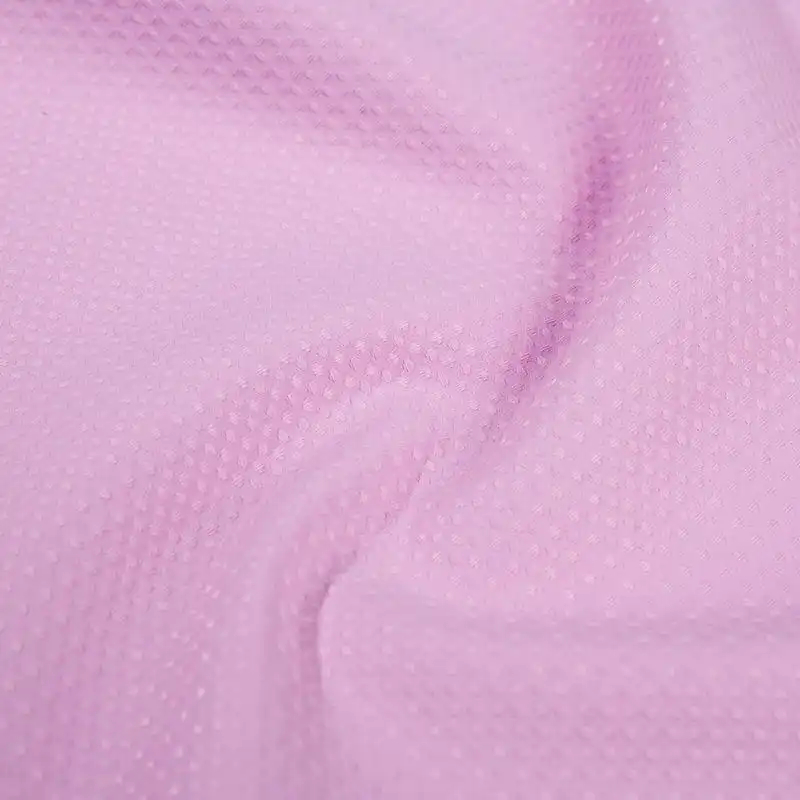
Maintenance:
Avoid direct sunlight: Prolonged sunlight exposure can cause polyester fibers to age, affecting their color and elasticity. Therefore, you should choose a cool and ventilated place when storing, or use curtains to block sunlight.
Keep it Dry: Choose a dry, well-ventilated place to store fabrics. Avoid placing polyester products in damp basements or attics. If possible, use a hygrometer to monitor the humidity in the storage area to ensure it remains within the appropriate range. Place some dehumidifier, such as activated carbon bags or specialized dehumidification boxes, in the wardrobe or storage box where the fabrics are stored to absorb excess moisture. Replace dehumidifier regularly to ensure it continues to be effective. If the fabric is a little damp, choose a sunny day with less wind to dry it outside, but avoid direct sunlight. Remove fabrics regularly to dry and air out to reduce the potential for moisture and mold growth. Be careful to avoid direct contact of the fabric with large amounts of water. For example, do not place cups, kettles, etc. on the fabric to prevent water from overflowing.
Avoid contact with sharp objects: Although polyester is abrasion-resistant, you still need to avoid direct contact with sharp objects to prevent scratches or tears. When moving, using or storing DOBBY WEAVE POLYESTER FABRIC, be particularly careful to avoid contact with the fabric and sharp objects such as scissors, knives, needles, etc. These items may leave scratches or cause tears in the fabric. When storing fabrics, make sure there are no sharp objects in wardrobes or storage bins. If necessary, wrap the tips of sharp objects with a soft material, such as cloth or foam, to prevent accidental scratches. When working with fabrics, be aware of your surroundings and make sure there are no sharp objects nearby. For example, stay away from the needle in your sewing box when sewing to avoid accidentally dropping the needle on the fabric.
Turn and dry regularly: If it is not used for a long time, it is recommended to turn and dry the fabric regularly to maintain its shape and elasticity and prevent marks caused by long-term folding or compression.
Avoid high temperatures: Do not place polyester fiber products in high-temperature environments, such as next to a heater or stove. High temperatures may destroy the fiber structure, causing deformation or melting.
cleaning method:
Prepare cleaning tools and detergent: Prepare a large basin or laundry bucket and use a mild detergent, preferably one specifically formulated for polyester fibers. Avoid using chlorine-containing bleach or strong alkaline detergents.
Soaking: Soak the fabric in warm water for 10-15 minutes, and control the water temperature between 30-40 degrees Celsius to fully dissolve the stain.
Gentle hand washing: Wash gently with your hands, being careful not to use too much force to avoid damaging the fibers. For stubborn stains, use a soft-bristled brush to gently scrub.
Rinse clean: After cleaning, rinse repeatedly with clean water to ensure that the detergent is completely rinsed away.
Remove excess moisture: Gently wring the fabric dry, or use a clean towel to gently absorb the moisture. Be careful not to wring it too hard to prevent the fabric from deforming.
Drying: Lay the fabric flat in a ventilated place to dry, away from direct sunlight. Do not use a dryer as high temperatures may damage the polyester.
Ironing: If desired, you can lightly iron with an iron at low temperature, but be sure to place a cloth over the fabric to prevent direct contact with the iron and cause damage.
pay attention:
Wash separately: Be sure to wash polyester items separately from other fabrics that are rough or may fade to prevent scratches or staining.
Avoid scrubbing and twisting: this will prevent the fabric from deforming and wrinkling.
Check the label: Before cleaning, check the cleaning label on the product and clean it according to the manufacturer's recommended method.


 English
English русский
русский عربى
عربى